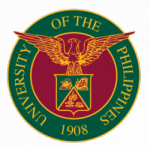The Biological Research Services Laboratory (BRSL) provides consultation, mentoring and/or advisory services to interested stakeholders in accordance with its field of expertise.
Author: Padayon UP
These provide analytical services and/or chemical analysis, particularly in the areas of analytical and environmental chemistry, to students and researchers of schools, universities and government agencies.
These services provide bioassay testing on the safety of natural products, foods, drugs, cosmetics, and other substances.
This workshop trains participants on basic molecular biology techniques such as DNA isolation, electrophoresis, PCR, and the like.
This program provides consultative and/or advisory services to students and researches of schools, universities, government agencies, and other private institutions on areas of analytical and environmental chemistry.
This training course provides orientation to personnel from the Department of Agriculture Bureau of Fisheries and Aquatic Resources (DA-BFAR) in culture collection work.
This training course provides appropriate orientation to laboratory and technical personnel from various sectors of the significance of waterborne microorganisms to public health. It also provides training in basic microbiological techniques and standard methods used in the bacteriological examination of drinking, bottled and environmental waters to these personnel.
Lectures
a) Basics of Forensic DNA Typing
b) Impact of DNA forensics in the Society
c) Fundamentals of Forensic DNA
Analysis
d) Filipino population history and demography: A genetic
perspective
e) A Scratch on the Surface”: Filipino Population Genetic Story and Genetic Perspectives on the History and Demography of the Mamanwa of Surigao
f) Y-chromosome genetic diversity of Filipino Negrito and non-Negrito groups
g) Workshop on Improving Laboratory Practices for Molecular Biology Researches Filipino Population Genetics: Another Aspect of UPD-NSRI-DAL Research
h) Hands-On Training on Molecular Phylogenetics
i) Genetics, history and demography of the Filipino population
j) The Peopling of the Philippines: Evidence from our DNA. Philippine Studies: Historical and Ethnographic Viewpoints
These online bridge courses are designed to help new students of senior high school. Online Learning Skills @UPOU is a four-week online course that aims to help students develop study skills for effective learning in an online distance education environment. Bridge English @UPOU, on the other hand, is also a four-week online course that reviews English grammar and writing mechanics to prepare students for college-level English Communication courses. Lastly, Bridge Math @UPOU is also a four-week online course designed to help students improve their foundation and basic skills in Mathematics.
GIMM aims to facilitate cooperation among teachers and researchers to work together to promote the learning and teaching of mathematics. This is done by supporting and carrying out activities such as conducting training on GeoGebra, developing GeoGebra teaching materials, offering workshops for future GeoGebra trainers, implementing new features of GeoGebra, developing an online-support system for teachers, designing and implementing research projects, and presenting at national and international conferences.

